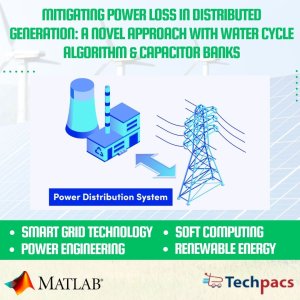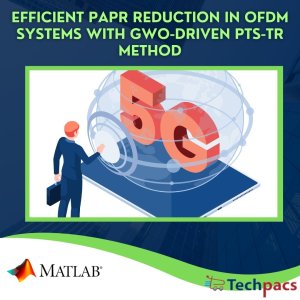Optimizing Load Forecasting Using Fuzzy Logic and GOA-ENN Optimization
Problem Definition
The existing problem in load forecasting lies in the limitations of traditional models that rely on fixed learning rates and are susceptible to slow convergence rates, being trapped in local minima, and being affected by weather and environmental conditions. These factors ultimately lead to decreased accuracy and efficiency in load forecasting systems. Additionally, the complexity and time-consuming nature of these models further compound the issue, making it challenging to achieve optimal results in a timely manner. As demonstrated by previous research, the lack of adaptability and flexibility in adjusting learning rates hinders the overall performance of load forecasting models. By addressing these key limitations and problems, the proposed model in this study aims to revolutionize load forecasting by introducing a more efficient and precise algorithm that can adapt to changing conditions and provide more accurate predictions.
Objective
The objective of this study is to revolutionize load forecasting by introducing a more efficient and precise algorithm that can adapt to changing conditions and provide more accurate predictions. This will be achieved by implementing a fuzzy logic-based pattern recognition system for power load classification and utilizing the Elman Neural Network (ENN) with tuning of weight values using the Grasshopper Optimization Algorithm (GOA) for load forecasting. The fuzzy logic system will automatically classify data patterns and categorize output load into different clusters based on similarities determined by average and standard deviation inputs. By using fuzzy system rules, the proposed method aims to improve classification performance and accurately determine cluster membership. Additionally, the integration of ENN with GOA will optimize the network training process, enhance convergence rates, and improve overall forecasting accuracy.
The proposed approach is designed to achieve more efficient results in load forecasting by combining fuzzy logic, ENN, and GOA algorithms.
Proposed Work
From the literature survey conducted, it was found that many researchers have used various meta-heuristic algorithms to enhance the accuracy of load forecasting by reducing the differences between actual and predicted load values. However, most models used fixed learning rates which led to slow convergence rates and the possibility of being trapped in local minima, especially in complex problems. Additionally, these models were time-consuming, less efficient, and easily affected by weather and environmental conditions, ultimately degrading traditional system performance. Therefore, this paper proposes a novel approach using fuzzy logic in conjunction with the GOA-ENN optimization algorithms to overcome the limitations of conventional methods and improve load forecasting accuracy.
The main objective of this proposed work is to implement a fuzzy logic-based pattern recognition system for power load classification and utilize the Elman Neural Network (ENN) with tuning of weight values using the Grasshopper Optimization Algorithm (GOA) for load forecasting.
The fuzzy logic system is aimed at classifying data patterns automatically, without manual effort, by categorizing output load into different clusters based on similarities determined by average and standard deviation inputs. By using fuzzy system rules, the proposed method improves classification performance by accurately determining cluster membership. Furthermore, the integration of ENN with GOA enables optimization of the network training process, enhancing convergence rates and overall forecasting accuracy. In conclusion, the proposed approach is designed to achieve more efficient results in load forecasting by optimizing network training through the combined use of fuzzy logic, ENN, and GOA algorithms.
Application Area for Industry
This project can be utilized in various industrial sectors such as energy, manufacturing, transportation, and healthcare where accurate load forecasting is crucial for optimal resource allocation and operational planning. The proposed solutions address the challenges faced by industries in traditional load forecasting models such as slow convergence rates, being trapped in local minima, and susceptibility to external factors like weather and environmental conditions. By incorporating fuzzy logic for data pattern classification and the grasshopper optimization algorithm for network training optimization, the proposed model offers enhanced precision in load forecasting and improved efficiency in different industrial domains. The benefits of implementing these solutions include faster convergence rates, reduced errors in predictions, and increased adaptability to changing conditions, ultimately leading to more effective resource management and operational decision-making in industries relying on load forecasting.
Application Area for Academics
The proposed project aims to enrich academic research, education, and training by introducing a novel model that combines fuzzy logic with the Grasshopper Optimization Algorithm (GOA) and Extreme Learning Neural Network (ENN) for load forecasting. This approach addresses the limitations of fixed learning rates in traditional models, leading to slow convergence rates and potential trapping in local minima. By utilizing fuzzy logic for data pattern classification and optimizing the network training process with GOA and ENN, the model enhances the precision of load forecasting and improves efficiency.
Researchers in the field of artificial intelligence, machine learning, and electrical engineering can benefit from this project by exploring innovative research methods and simulations for load forecasting. The application of meta-heuristic algorithms such as GOA and ENN in combination with fuzzy logic opens up opportunities for advancing data analysis techniques in educational settings.
MTech students and PhD scholars can utilize the code and literature of this project to enhance their research work in the areas of optimization, pattern recognition, and neural networks.
The relevance of this project lies in its potential to revolutionize traditional load forecasting models by incorporating advanced techniques that improve accuracy and efficiency. Future research can further explore the application of different meta-heuristic algorithms and optimization strategies in combination with fuzzy logic for enhancing various aspects of data analysis and forecasting in academic research and practical applications.
Algorithms Used
In order to overcome the issue related to conventional approaches, this paper proposes a novel model in which fuzzy logic is used along with the combination of GOA-ENN optimization algorithms. The main motive of using fuzzy logic is to classify the patterns of data. For instance, if two data patterns are present in the database, then the two types will be created using fuzzy logic as per the time interval. Fuzzy system will help in deciding the patterns in the data without any manual effort. The proposed fuzzy logic takes two inputs i.
e. average and standard deviation to categorize the output load into two clusters based on their similarities. The proposed fuzzy logic comprises average and standard deviation as two inputs. These two inputs are then pre-processed in the fuzzy system by a defined set of rules to get an output which determines whether the obtained pattern belongs to cluster 1 or cluster 2. Moreover, the proposed method enhances the performance of the classical ENN network by using a meta-heuristic algorithm called as grasshopper optimization algorithm (GOA).
The main contribution of the proposed work is to enhance the performance of classification or forecasting rate by optimizing the network training process. The purpose of using the ENN and GOA together is to perform optimization so that an optimal output can be obtained and to increase the convergence rate. Therefore, this proposed approach can help to achieve more efficient results for load forecasting.
Keywords
SEO-optimized keywords: meta-heuristic algorithms, load forecasting, learning rate, optimum learning rate, convergence rate, local minima, fuzzy logic, GOA optimization algorithm, data classification, pattern recognition, power load, Elman Neural Network, weight tuning, machine learning, load management, energy forecasting, time series forecasting, artificial intelligence, energy efficiency, energy management systems.
SEO Tags
Fuzzy Logic, Pattern Recognition, Power Load, Load Forecasting, Elman Neural Network, GOA Optimization Algorithm, Weight Tuning, Neural Networks, Machine Learning, Power Load Prediction, Load Management, Energy Forecasting, Energy Consumption, Time Series Forecasting, Artificial Intelligence, Energy Efficiency, Energy Management Systems
| Shipping Cost |
|
No reviews found!

















































No comments found for this product. Be the first to comment!